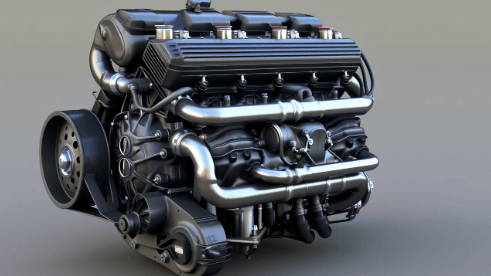Engines are the powerhouse behind a wide range of machinery, providing the necessary force to perform countless tasks across various industries. Understanding the different types of engines and their applications can be crucial when deciding which one to purchase. This buyer’s guide will explore the main types of engines and their uses, helping you make an informed decision.
Internal Combustion Engines (ICE)
Gasoline Engines
Gasoline engines, a subset of internal combustion engines, are commonly found in automobiles, motorcycles, and small machinery like lawn mowers. They work by igniting a mixture of fuel and air inside the engine’s cylinders, causing explosions that drive pistons. These engines are praised for their efficiency and power output, making them ideal for personal vehicles and small-scale applications.
Diesel Engines
Diesel engines are another kind of internal combustion engine, known for their durability and fuel efficiency. They use compression ignition instead of spark ignition, making them more robust and suitable for heavy-duty applications. Diesel engines are frequently used in trucks, buses, agricultural machinery, and industrial equipment. They provide higher torque at lower RPMs, which is advantageous for towing and transporting heavy loads.
Electric Engines
Electric engines, or motors, are increasingly popular due to their environmental benefits and efficiency. Unlike internal combustion engines, electric motors convert electrical energy into mechanical energy without needing combustion. They are commonly found in electric vehicles (EVs), industrial machines, and household appliances. Electric engines are highly efficient, quiet, and require less maintenance than their combustion counterparts, making them a great choice for applications where reliability and sustainability are priorities.
Hybrid Engines
Hybrid engines combine internal combustion engines with electric motors to offer the benefits of both systems. They are commonly used in hybrid vehicles, which can switch between or simultaneously use gasoline and electric power. This combination allows for improved fuel efficiency and decreased emissions. Hybrids are an excellent option for buyers looking for a balance between traditional and modern engine technologies.
Steam Engines
Although largely replaced by more modern engines, steam engines played a pivotal role in the industrial revolution and are still used in specific niche applications. They operate by heating water to create steam, which then drives pistons or turbines. Today, steam engines are primarily found in power plants and historical or hobbyist settings. They are valued for their ability to use various fuel sources and their simplicity in construction.
Choosing the Right Engine
When selecting an engine, consider the following factors:
1. Application
Determine what the engine will be used for. Light-duty tasks like lawn care might require a gasoline engine, while heavy-duty construction or agricultural work might be better suited for a diesel engine. For environmentally-conscious applications or areas with strict emissions regulations, electric or hybrid engines might be the best choice.
2. Efficiency and Environmental Impact
Electric engines are the most efficient and environmentally friendly, followed by hybrid engines. Diesel engines, while efficient in terms of fuel consumption, produce more pollutants. Gasoline engines strike a balance but are less efficient than diesel and electric engines.
3. Cost and Maintenance
Initial costs and maintenance requirements vary significantly between engine types. You will also need to factor in shipping and delivery costs. To get an idea of this additional cost, you can get an engine shipping quote. Diesel engines, though more expensive upfront, are durable and economical over long-term use. Gasoline engines are less costly initially but may require more frequent maintenance. Electric engines, while potentially expensive to purchase, have lower operating and maintenance costs.
4. Fuel Availability
Ensure the fuel type required by the engine is readily available in your area. For example, diesel fuel might be more accessible in rural or industrial areas, while electricity for charging electric engines might be more accessible in urban environments.

